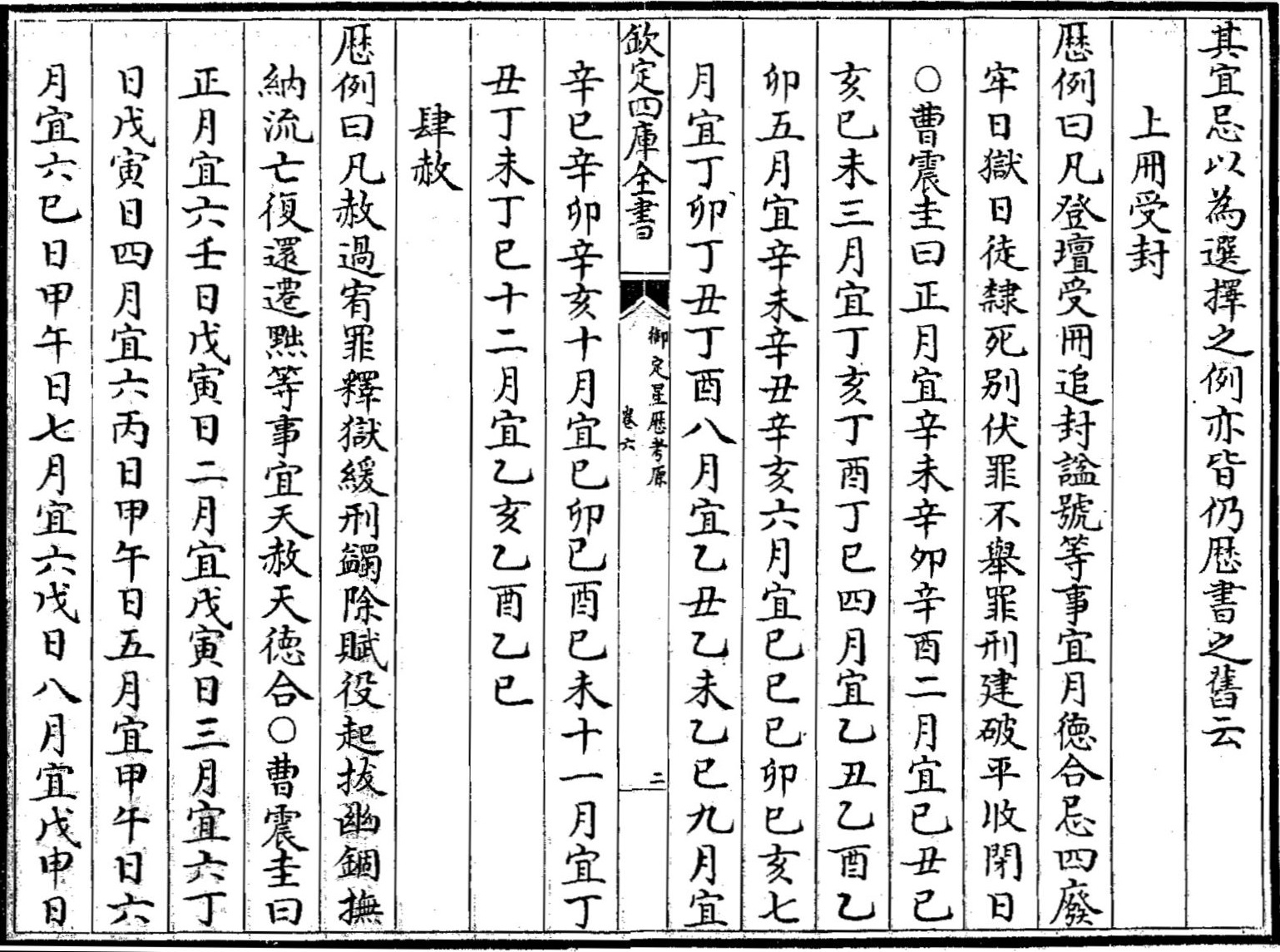(Yuding) Xingli kaoyuan (御定)星曆考原 is an astrological almanac written by Li Guangdi 李光地 (1642-1718), courtesy name Jinqing 晉卿, style Hou'an 厚庵 or Rongcun 榕村. He hailed from Anxi 安溪 in the prefecture of Quanzhou 泉州, Fujian. His highest post was Grand Academician of the Hall of Literary Profundity ( Wenyuange daxueshi 文淵閣大學士). Li was a famous Neo-Confucian master of his time and took part in the compilation of the compendium Xingli jingyi 性理精義, the collected works of Zhu Xi 朱熹 (1130-1200), Zhuzi quanshu 朱子全書, and a kind of lexicon on the Book of Changes, Zhouyi zhezhong 周易折中.
The almanac is the result of a compilation begun in 1683 of two books, Xuanze tongshu 選擇通書, and Wannianli 萬年曆. These two texts were unified in a project begun in 1713. Li Guangdi and his team used Cao Zhengui's 曹振圭 almanac Lishi mingyuan 曆事明原. Each of the 6 juan of the resulting book constitutes a chapter. The text is guided by the ancient belief in auspicious spirits (jishen 吉神) and demons (shashen 煞神), the presence of which on certain days might influence human activities like business transactions, farming, "going out", marriage, or activities by the emperor like pronouncing edicts or amnesties, or carrying out sacrifices. The almanac therefore explains which days and hours were influenced by Yin and Yang 陰陽 or were deemed as benefitting (yi 宜) or as "taboo days" (ji 忌).
 |
List of positive days for proclamations of investitures and punishments. Siku quanshu edition. |
Li Guangdi's book evaluated a host of ancient writings which had each their own views on the auspiciousness of certain days and hours, and tries to create a "scholarly correct" balance of statements, following the concept of Yin and Yang the the Five Agents (wuxing 五行).
The text is included in the imperial series Siku quanshu 四庫全書.
| 1 | 象數考原 | The basic matters of phenomena and numerology |
| 2 | 年神方位 | Positions of annual spirits |
| 3 | 月事吉神 | Auspicious spirits for monthly affairs |
| 4 | 月事兇神 | Inauspicious spirits for monthly affairs |
| 5 | 日時總類 | General categories for days and hours |
| 6 | 用事宜忌 | Positive and negative [days] for specific activities |